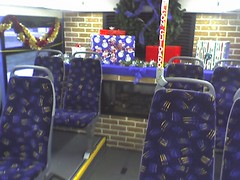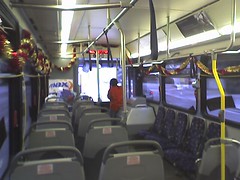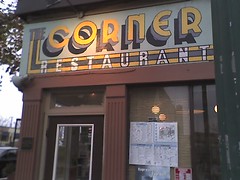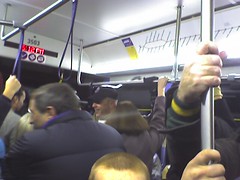
Anita Gorman is a well-respected community leader who has won recognition for her contributions to the cause of conservation. She was chairman of the Missouri Conservation Commission, president of the Board of Parks and Recreation Commissioners and had a park named after her when she retired from that post. The Discovery Center, an urban conservation area along Brush Creek, bears her name. She has figured prominently in several fundraising and charity events and serves on a handful of honorary commissions. Basically, she is a local hero.
Last night, she called me pathetic.
I was participating in a discussion at a public forum regarding the Riverfront Park development being pursued by the Port Authority. One of the discussion-inducing questions was "can you imagine this park without parking in it?," in response to which Gorman immediately became incredulous.
The development is involving some of the best consultants in mixed-used development and urban parks available, and the plan is advocating the leveraging of the adjacent neighborhood to provide event parking. More than 800 on-street spaces will be provided in the neighborhood, in addition to the private parking accommodations of the residents and an independent parking supply for the office space.
Gorman shook her head adamantly.
"You need to let these people know that they aren't getting it when it comes to parking," she said. I indicated, in turn, that I could absolutely envision the park without independent parking. It could leverage the plentiful parking in the area that would only be needed during off-peak times, all without destroying the park in the process.
Clutching her car keys in hand, Gorman began to stare me down. It was immediately clear that she is used to people reverently listening when she speaks, yielding to her legacy. In reaction, she evoked it, discrediting me with a smirk and sharing credentials like "I have been in KC longer than many of you [me] have been alive" and when events were held in Loose Park, neighbors were upset by the impact to the neighborhood. She laughed at the consultants suggestion that we re-route Riverfront Drive, saying the Kansas Citians can surely cross a street while missing the point that the sense of flow and connectivity was at play, not the ability to cross. She advocated keeping the street to accommodate a "sea of parking" for events.
I countered that the layout, connections and neighborhoods that will be near this park couldn't be more different than Loose Park and that a mixed use development is designed differently than a low-density, single-family homes neighborhood of mostly affluent people like the area around Loose Park. I also said that those who choose to live in such a development make a lifestyle choice that includes such complications as people coming in from outside of the neighborhood. In fact, we welcome it.
My continued deviation from her gospel clearly irritated her, and at this point it was visible on her face and apparent in her rushed delivery. She told me that "you'll never change things in Kansas City," "it won't work here," "you don't understand," etc, before ending with "you really are quite pathetic," to the shock of me and the others in attendance.
When challenged to defend her position, she made no defense other than to cite her legacy and then, failing that, to childishly call names.
In our only true riverfront space in Kansas City, this "conservation hero" wanted to make sure there was plenty of parking for her sport utility, despite the fact that parking would sit unused on the vast majority of days, adjacent parking would go underutilized and density and connectivity to the park would be lost.
For this park to be great, things are going to have to change in Kansas City, and they already have and continue to do so. I know because I'm paying attention and I'm an agent of change, not a member of an outdated way of thinking. I may not count for much, but I care about doing things right and I refuse to believe any tired stereotype about our city.
Perhaps everyone who yields to Anita Gorman out of respect alone should put a little more faith in our city and a little less faith in her outdated viewpoint and her childish tactics. I was very disappointed that this respected community symbol, a conservation hero who ironically falls in favor of more parking lots, could not have a constructive conversation about an important topic without attempting to immediately discredit me and call me names, all while undermining the thought that Kansas City can really become world-class.
On the way out, Gorman gave me an insincere smile while carefully analyzing my nametag to remember my name and then gave me the patronizing finale: "Now, Matthew, you won't be too upset if we just have a few parking spaces in our park, now, will you?" I'm sure I'm a marked man now.
Plenty of other people were there to see this and I hope they don't forget her behavior. I certainly won't, and I certainly won't let her legacy stand in the way of the legacy of our city and our return to the river.
If that makes me pathetic, so be it.








